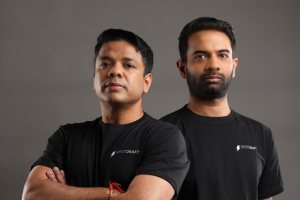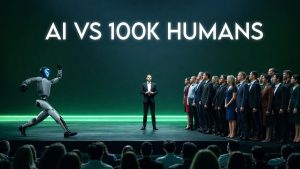Massive AI Training Efforts Unearth Content Scraping Controversy

A startling revelation has come to light about the massive scraping ofYouTube video transcripts for training AI models. These transcripts, extracted from over 173,000 videos, have been used by companies such as Apple and Nvidia. The sheer scale of this data collection is extraordinary.
Meanwhile, this practice brings up significant questions about data privacy and creator consent. Popular channels and creators, including MrBeast and John Oliver, have unwittingly contributed to these AI systems. Therefore, this has ignited a heated debate about the ethical implications of using publicly available content without explicit permission.
Overview of AI Scraping Activities
The tech landscape is evolving rapidly, and one intriguing development is the scraping of YouTube video transcripts for training AI models. This practice involves extracting data from over 173,000 YouTube videos, spanning about 48,000 different channels. Companies like Nvidia, Apple, and Salesforce are leveraging these transcripts to enhance their AI capabilities. This raises important questions about data privacy and consent in the digital age.
The staggering volume of data used, involving popular creators such as MrBeast, John Oliver, and the Wall Street Journal, highlights the immense scale of these scraping activities. The dataset, known as YouTube Subtitles, is being scrutinized as part of a more extensive investigation. While it advances AI technology, it also sparks debate on the ethical implications of using publicly available content without explicit permission from the creators.
Innovative Countermeasures and Their Efficacy
In response to these developments, creators and institutions are exploring innovative ways to protect their content. Jingna Zhang, an artist and tech founder, developed a social platform aimed at shielding artists from unauthorized data use. Similarly, the University of Chicago is working on Nightshade, a tool designed to “poison” images, making them less useful for AI training.
These countermeasures represent a proactive stance against the unregulated use of digital content. However, the effectiveness of these solutions remains to be seen. Zhang’s platform and Nightshade offer some hope for creators, but they may not be foolproof solutions against the ever-evolving tactics used in data scraping. Ongoing research and development are crucial to stay ahead in this digital arms race.
The Role of Industry Giants
The involvement of industry heavyweights like Nvidia and Apple underscores the significance of AI models trained using scraped data. These tech giants are on a relentless quest to improve the accuracy and functionality of their AI systems. The large-scale use of YouTube transcripts is part of their broader strategy to harness abundant online content for technological advancements.
While the use of such data can lead to more sophisticated and capable AI systems, it also places these companies under scrutiny. There are growing calls for transparency and accountability in how they source and use data. As these firms push the boundaries of AI, they must also navigate the complex ethical landscape surrounding digital content usage. Balancing innovation with respect for content creators’ rights is a challenge that cannot be overlooked.
Ethical and Legal Implications
The practice of scraping digital content for AI training is not without controversies. Many creators feel their content is being used without proper acknowledgment or compensation. This has led to an outcry over the lack of consent and transparency in how their work is utilized.
Legal frameworks around this practice are still catching up to technological advancements. In many jurisdictions, laws governing data scraping and digital content usage are either outdated or insufficient. Consequently, there’s an urgent need for policymakers to establish clear guidelines that protect the rights of creators while allowing technological innovation to flourish.
The debate around these ethical and legal concerns continues to intensify. As AI becomes more prevalent, society must grapple with the implications of using vast amounts of digital data, striking a balance between progress and protectionism.
Challenges Faced by Creators
Creators on platforms like YouTube find themselves in a precarious position. They are the lifeblood of the vibrant online content ecosystem, yet they often have little control over how their work is used. This issue is magnified by the practice of scraping data for AI training purposes.
The sheer scale of content creation on YouTube makes it nearly impossible for individual creators to monitor or control the use of their work. Even when countermeasures like Nightshade are implemented, they may not be entirely effective against sophisticated data scraping techniques. Creators are left with few options but to rely on platforms and policymakers to safeguard their interests.
This dynamic underscores the need for a more robust framework to ensure creators are protected and fairly compensated. As the discussion around AI and data scraping evolves, the voices of content creators must be heard and considered in shaping the future of digital content usage.
Future Perspectives and Technological Evolution
As technology continues to evolve, the methods for training AI models are likely to become more sophisticated. This evolution will bring about new challenges and opportunities in managing digital content. The current debate over YouTube transcript scraping is just one of many issues that will shape the future of AI development.
In the coming years, we can expect to see more advanced techniques for both AI training and digital content protection. The ongoing tug-of-war between innovation and ethical considerations will play a crucial role in determining the trajectory of these advancements. Stakeholders, including tech companies, creators, and policymakers, must collaborate to navigate this complex landscape.
Ultimately, the goal should be to harness the power of AI in a way that respects the rights and contributions of all involved. With thoughtful regulation and innovative solutions, it is possible to achieve a balance that promotes technological progress while safeguarding individual rights.
Global Impact and Collective Responsibility
The implications of AI training using scraped data extend beyond individual creators and companies. This practice has a global impact, influencing how technology evolves and is perceived worldwide. As AI systems become integral to various sectors, the ethical considerations surrounding their development gain international significance.
Different regions and countries may adopt varying approaches to regulating AI and data scraping practices. This diversity in regulatory frameworks highlights the need for a collective responsibility in addressing these challenges. Global cooperation and dialogue are essential in creating a balanced and fair approach to AI development.
As we navigate this rapidly changing technological landscape, it is vital to recognize the interconnectedness of our actions and decisions.
The vast scraping of YouTube video transcripts brings to light the double-edged nature of technological advancements. While it significantly aids in developing more powerful AI systems, it steps into a murky territory regarding ethical and legal implications. This practice forces society to reconsider how digital content is used and how creators’ rights are protected.
Future solutions must strike a balance between progress and privacy. As tech continues to evolve, creators, companies, and policymakers must collaborate to ensure a fair and just digital landscape. Protecting content creators while fostering innovation is essential for sustainable technological growth.





